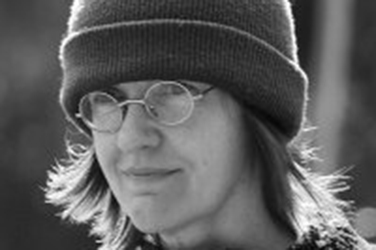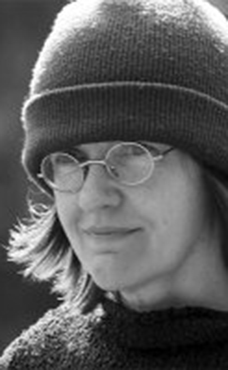
- Free Article: No
- Contents Category: Critic of the Month
- Custom Article Title: An interview with Diane Stubbings
- Review Article: No
- Article Title: An interview with Diane Stubbings
- Online Only: No
- Custom Highlight Text:
Diane Stubbings is a writer and critic based in Melbourne. Her plays have been shortlisted for a number of Australian and international awards, and staged in Sydney, Melbourne and New Zealand. She has written for Australian Book Review, The Australian, The Canberra Times, and the Sydney Review of Books. Her study of Irish Modernism was published by Palgrave.
- Featured Image (400px * 250px):

- Alt Tag (Featured Image): Critic of the Month with Diane Stubbings
When did you first write for ABR?
In early 2020. Within six weeks I had written a book review and two theatre reviews. Within weeks of reviewing David Williamson’s Emerald City, Melbourne was in lockdown.
What makes a fine critic?
A willingness to grapple with the ideas a writer is exploring.
Which critics most impress you?
I was always interested to read what Michael Billington (The Guardian) thought about UK theatre, both new plays and reimagined classics. Reading him taught me to review not what I thought a play or book should be, but rather what the writers and theatremakers were trying to achieve. I love Olivia Laing’s writing about art and pop culture, and I have recently stumbled across Brian Dillon’s perceptive essays about writing and culture. My go-to critic was (and still is) Clive James. He could pivot from Philip Larkin to Torvill & Dean, George Orwell to Game of Thrones, and bring the same level of wit, erudition, and insight to each. His review of Judith Krantz’s Princess Daisy remains a marvel. ‘To be a really lousy writer takes energy’ – what an opening line!
Do you accept most books on offer or are you selective?
I do. It’s a way of engaging with books and authors you might not otherwise have found the time to read. Some of the writers whom I now read religiously – Anne Enright, Richard Flanagan, Colum McCann, Jennifer Mills, Jeanette Winterson, Francis Spufford, and Gail Jones, for example – I’ve chanced upon through commissions.
What do you look for from an editor?
Someone whom I can trust with my writing (and my ego), and who trusts me in turn.
Do you ever receive feedback from readers or authors?
Occasionally. Positive feedback is always gratefully received. Negative feedback gives you pause for thought. Is the author or actor right? Was I unfair? Did I miss something important? It spurs you intermittently to reappraise your own work and your approach to criticism, which is crucial.
What do you think of negative reviews?
They are vital, as long as they’re respectfully written. I think there’s a certain timidity among some reviewers, a fear of encountering on the festival circuit writers about whom they’ve written a negative review, or of being reviewed by that author in turn. There’s also a tendency in some critical circles to applaud the sentiment of a book or the biography of an author, and to pay little attention to the quality of the work itself. It does no one any favours – writers or readers – to hedge your criticism because a book or author is ‘worthy’.
How do you feel about reviewing people you know?
I have a strict rule against it. It’s one of the reasons why I avoid book festivals and author talks – it’s too easy for my attitude towards a writer to get in the way of my consideration of their writing.
How different, if at all, are theatre reviews from book reviews?
The words of a book don’t change – and you can read them again and again as you try to formulate a critical response to the work. Theatre is a much more ephemeral art form. You write your review based on a single performance, trying to capture something not only of the quality of the writing (in the case of a new play) but also of the craft of the performance and the emotional heft it generates. You’re trying to speak for an audience – not just an individual reader.
What are a critic’s primary responsibilities?
To be honest but respectful. To not let self-aggrandisement get in the way of their critical instincts. To keep learning and thinking. To accept that you sometimes get it wrong and to not be afraid to say so.



Comments powered by CComment